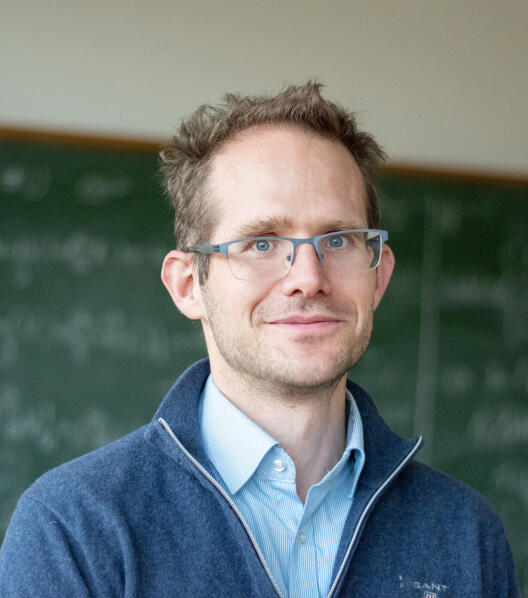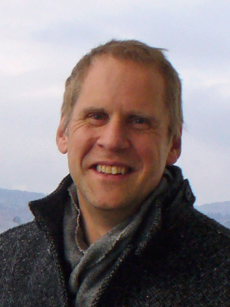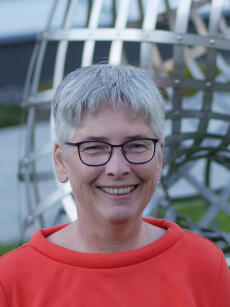Mathematician Gustav Holzegel awarded a Humboldt professorship

A great asset for the University of Münster and its Faculty of Mathematics and Computer Science: today, the Humboldt Foundation announced that Prof. Gustav Holzegel is one of eight scientists to be appointed to an Alexander von Humboldt professorship. The renowned research prize includes funding of 3.5 million euros for five years. Gustav Holzegel is one of the world’s leading experts on the General Theory of Relativity. At the beginning of November he moved from Imperial College London to the University of Münster. After the Humboldt professorship for Prof. Michael Weiss in 2012, Gustav Holzegel’s appointment is the second success of this kind for the Faculty of Mathematics and Computer Science.
“The Humboldt professorship opens up entirely new opportunities for me to pursue my own research, hire talented junior researchers and attract distinguished scientists to Münster for longer periods,” is a delighted Gustav Holzegel’s comment on the news from the Humboldt Foundation. “I’m sure that it will develop a strong dynamic of its own, as well as enhancing the University’s international reputation.”
Gustav Holzegel, 40, is one of the leading researchers engaged on the theory of Einstein equations of general relativity, i.e. the theory of gravitation formulated by Einstein in 1916. His research lies at the intersection of non-linear partial differential equations and differential geometry and has a strong impact on physics. In the last few years, he received several awards for his pioneering contributions to the mathematical understanding of black holes. In particular, his proof of the linear stability of the Schwarzschild solution (collaboration with Dafermos and Rodnianski) opened the door to a complete solution of the famous black hole stability conjecture. At Münster, he will be continuing his research programmes on the stability of black holes and on the dynamics of anti-de Sitter space times, but he also aims to get some new projects started, for example on the formation and stability of singularities of the Einstein equations. “And what I also hope for, of course, is the emergence of some unexpected projects as a result of interacting with the colleagues around me,” he adds.

“Black holes are a hot topic at the moment – this year the Nobel Prize for Physics was awarded for research precisely in this field,” says Prof. Joachim Lohkamp from the Faculty of Mathematics and Computer Science, who was one of the leading advocates for the nomination of Gustav Holzegel for the Humboldt professorship. “With the appointment of Gustav Holzegel,” says Joachim Lohkamp, “Münster University is now one of the outstanding locations for work on the Theory of Relativity and in particular black holes. Our students will be gaining access to the frontline of research in this field. In addition, the Cluster of Excellence ‘Mathematics Münster’ will be further strengthened.”
Prof. Angela Stevens played a pivotal role in the successful negotiations with Gustav Holzegel – who was Professor in London up to this point – and is looking forward to working with him. “Gustav Holzegel is a mathematician who uses powerful tools from geometric analysis and partial differential equations to answer deep questions in theoretical physics and astrophysics. His appointment is a great asset for Münster,” she says.
At the beginning of November, Gustav Holzegel took up a so-called “Bridging the Gaps” professorship at Münster, designed to bring together the various sub-disciplines. “My field of research, the General Theory of Relativity, reaches into many different fields of mathematics and, as such, fits in very well with this unifying concept,” he says. “Geometry especially – the basis of the theory of relativity – is outstanding in Münster and very broad-based. I’m also looking forward to interacting with colleagues from applied mathematics on the theory of non-linear partial differential equations.”

What impressed Gustav Holzegel most of all at Mathematics Münster was the mood of optimism for the future. “There is a vision here of what can and should happen in the coming years, and this seems to be endorsed and supported by all the colleagues here, both young and old, without any reservations. It’s an environment in which hopefully a lot of new ideas can be developed and exchanged!” Gustav Holzegel is especially grateful to Angela Stevens, Joachim Lohkamp and Mario Ohlberger. “This success would not have been possible without their enthusiasm and their meticulous work in drawing up the Humboldt application,” he says.
The University’s management is also delighted at the news. “In Professor Holzegel we have been able to attract to the University of Münster not only a leading international mathematician, but also a further Humboldt professorship – and a second one for Mathematics, at that. This represents an exceptional strengthening of Mathematics as one of our core profile areas, as well as being an outstanding success overall for the University of Münster,” says Prof. Johannes Wessels, the Rector of the University.
Prof. Gustav Holzegel
Gustav Holzegel was born in 1980 and graduated in Physics at the University of Kaiserslautern. He took his PhD in 2008 at the Department of Applied Mathematics and Theoretical Physics (DAMTP) at the University of Cambridge and subsequently undertook research at Princeton University in the USA. From 2012 he was at Imperial College London, where he was appointed professor in 2018. Since November 2020 he has held a Bridging the Gaps professorship at the University of Münster. For his pioneering contributions to the mathematical understanding of black holes, Gustav Holzegel was awarded the Whitehead Prize by the London Mathematical Society (2016), the Adams Prize by the University of Cambridge (2018) and the Blavatnik Award (2019).
Alexander von Humboldt professorships
Alexander von Humboldt professorships are awarded to researchers who are worldwide leaders in their fields and have so far been working abroad. This is the most valuable international research prize in Germany. It is awarded by the Alexander von Humboldt Foundation and funded by the Federal Ministry of Education and Research. It opens up opportunities for German universities to offer top-level researchers internationally competitive conditions for working and enhancing their profile in worldwide competition.
Links:
Press release Humboldt Foundation [de]
Press release University of Münster
Prof. Dr. Gustav Holzegel: personal website and contact information

